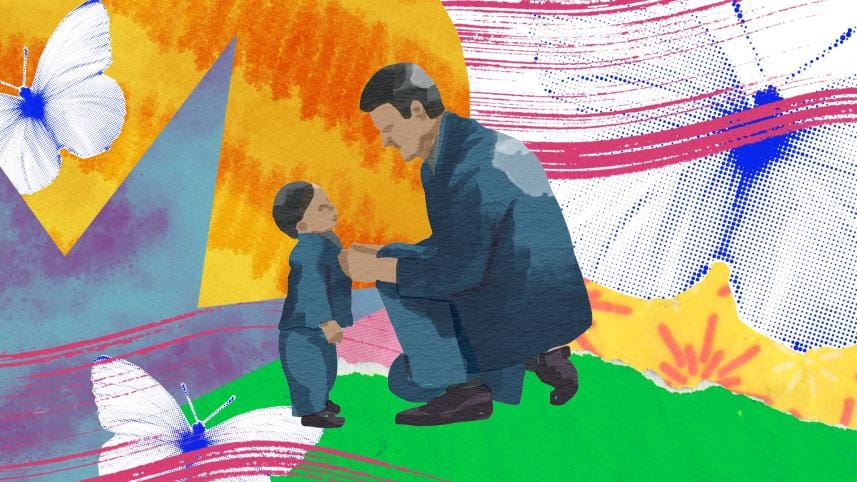When a child is their parents’ second chance

Bangali parents are perhaps one of the most complex species to exist. No two are ever quite the same. Yet, if you squint hard enough, you might notice that most fall into two broad camps: those who see their children as individuals with own choices, and those who see them as extensions of themselves.
Both kinds have the same parental fears that all parents have had since time immemorial – concern about kids' safety, their future, and their security in life. But it's the way in which they approach these insecurities that makes these two groups so vastly different.
The first group of parents respects their child's individuality and acknowledges them as a separate entity with their own choices. They don't always agree with the decisions their children make, but they allow room for difference. There are arguments, of course – sometimes loud and chaotic – but the arguments happen because voices are allowed to exist. The child is allowed to hold opinions different to their parents and there are conversations regarding the difference rather than the parent refusing to hear it out in the first place.
Then there's the second group – the one whose love comes with invisible strings. Here, parental concern morphs into control. While it might originate from parental attachment, it slowly grows into a parasitical branch grasping over every single aspect of the child's life. Not just academic or career choices, the control slowly transforms into micromanaging the daily life and absolute control over the child's emotions. Sadness is met with impatience. Anger is punished, not explored. But where does this parental trait originate from?
Most of our parents grew up in post-independence Bangladesh – scarred by uncertainty, defined by struggle. For many of them, life was about survival: moving to cities with empty pockets, working jobs they didn't love, sacrificing dreams they couldn't afford to chase, and so on. Their fight was to provide us with what they never had: stability. Chasing stability and growth, they had to let go of aspirations, ambitions, and their own self-interests. They simply couldn't afford to risk it all.
With time, they were able to provide their children with the financial backup that they didn't have. Thanks to their sacrifices, most of us have a place to land if or when we fall. But in the quest to make sure we never fall, many forgot to let us fly.
Here lies the paradox: If financial stability was the dream, and we now have it—shouldn't we be allowed to dream beyond survival? What good is security if we must live the same life our parents did, minus the hunger? What is even the point of financial stability if the child has to pursue the same mediocrity its parents had to while battling financial instability?
The truth is, many of these parents do want their kids to succeed. But they want that success on their terms: the right degree, the right job, the right life. Too often, the kids are cast in unfinished stories—asked to chase dreams that were never theirs to begin with. With the security the children have been provided with, the parents want them to complete whatever incompleteness they had in life. A more prestigious institution, a bigger job, a grander title—the kids end up chasing goals the parents had defined for them, living someone else's incomplete life.
And perhaps the greatest tragedy? So many of us are strangers to the very people we call family. Parents might see their children every day without the slightest idea of who they actually are. So, here's the question: If we trade away our dreams for someone else's definition of success, even if it's wrapped in love and sacrifice, are we really living or just existing?
Reach Ifti's spam at hasiburrashidifti@gmail.com



 For all latest news, follow The Daily Star's Google News channel.
For all latest news, follow The Daily Star's Google News channel. 
Comments